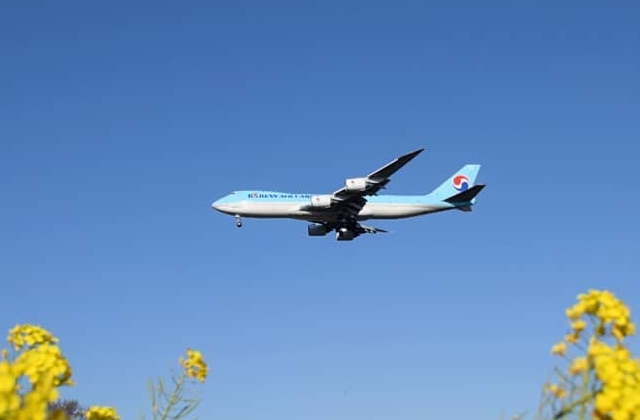Korean Air and Asiana Airlines are set to merge in 2022, but it was delayed to 2024. The acquisition agreement was announced in November 2020, and the full merge of South Korea’s major airlines will make it the seventh-largest airline in the world.
The delayed merger
The delay was caused by the regulatory approval that is required for the acquisition to be sealed. As per Yonhap News Agency, Korean Air’s acquisition of Asiana already received the necessary first approval from Turkey, but it still has to get consent from eight other countries, including the United States, the EU, South Korea, Japan, China, Taiwan, Thailand, and Vietnam. It was reported that the takeover process is expected to be completed next year.
Korean Air is acquiring Asiana for $1.6 billion or KRW1.8 trillion, and this move is also to save the latter that has been riddled with debts. The former forwarded a post-merger integration plan to the Korea Development Bank, which is Asiana's main creditor.
Once the whole process is finalized and finished, Hanjin KAL will act as the holding company for Korean Air which will control Asiana. Combined, Korean Air and Asiana take up 40% of the passenger and cargo service at Incheon International Airport.
EU’s dismissal of Canadian Air merger has an effect on Korean Air-Asiana deal?
Now, as the Korean Air and Asiana deal is still awaiting approval from concerned countries as part of the regulatory process, the European Union recently rejected Air Canada's merger try with Transat AT.
The Korea Times reported that with EU's decision, it could also have an effect on Korean Air’s acquisition of Asiana. The outlet stated that it raised concern because the EU may also express disapproval, and this may push to deny the planned acquisition of Asiana Airlines.
As mentioned earlier, only Turkey has already approved the deal so far, and Korean Air has to gain more signatures from nine antitrust authorities where the airline operates. Finally, for the merge to happen, at least three more countries from the bloc should approve as the minimum count needed from consenting parties is four.



 Instagram Outage Disrupts Thousands of U.S. Users
Instagram Outage Disrupts Thousands of U.S. Users  Trump Lifts 25% Tariff on Indian Goods in Strategic U.S.–India Trade and Energy Deal
Trump Lifts 25% Tariff on Indian Goods in Strategic U.S.–India Trade and Energy Deal  OpenAI Expands Enterprise AI Strategy With Major Hiring Push Ahead of New Business Offering
OpenAI Expands Enterprise AI Strategy With Major Hiring Push Ahead of New Business Offering  Asian Stocks Slip as Tech Rout Deepens, Japan Steadies Ahead of Election
Asian Stocks Slip as Tech Rout Deepens, Japan Steadies Ahead of Election  Global PC Makers Eye Chinese Memory Chip Suppliers Amid Ongoing Supply Crunch
Global PC Makers Eye Chinese Memory Chip Suppliers Amid Ongoing Supply Crunch  Nvidia CEO Jensen Huang Says AI Investment Boom Is Just Beginning as NVDA Shares Surge
Nvidia CEO Jensen Huang Says AI Investment Boom Is Just Beginning as NVDA Shares Surge  South Korea Assures U.S. on Trade Deal Commitments Amid Tariff Concerns
South Korea Assures U.S. on Trade Deal Commitments Amid Tariff Concerns  Oil Prices Slip as U.S.–Iran Talks Ease Supply Disruption Fears
Oil Prices Slip as U.S.–Iran Talks Ease Supply Disruption Fears  Japan Economy Poised for Q4 2025 Growth as Investment and Consumption Hold Firm
Japan Economy Poised for Q4 2025 Growth as Investment and Consumption Hold Firm  SpaceX Pushes for Early Stock Index Inclusion Ahead of Potential Record-Breaking IPO
SpaceX Pushes for Early Stock Index Inclusion Ahead of Potential Record-Breaking IPO  TSMC Eyes 3nm Chip Production in Japan with $17 Billion Kumamoto Investment
TSMC Eyes 3nm Chip Production in Japan with $17 Billion Kumamoto Investment  Trump Signs Executive Order Threatening 25% Tariffs on Countries Trading With Iran
Trump Signs Executive Order Threatening 25% Tariffs on Countries Trading With Iran  Dollar Steadies Ahead of ECB and BoE Decisions as Markets Turn Risk-Off
Dollar Steadies Ahead of ECB and BoE Decisions as Markets Turn Risk-Off  SpaceX Prioritizes Moon Mission Before Mars as Starship Development Accelerates
SpaceX Prioritizes Moon Mission Before Mars as Starship Development Accelerates  Japanese Pharmaceutical Stocks Slide as TrumpRx.gov Launch Sparks Market Concerns
Japanese Pharmaceutical Stocks Slide as TrumpRx.gov Launch Sparks Market Concerns  CK Hutchison Launches Arbitration After Panama Court Revokes Canal Port Licences
CK Hutchison Launches Arbitration After Panama Court Revokes Canal Port Licences  Prudential Financial Reports Higher Q4 Profit on Strong Underwriting and Investment Gains
Prudential Financial Reports Higher Q4 Profit on Strong Underwriting and Investment Gains 






















